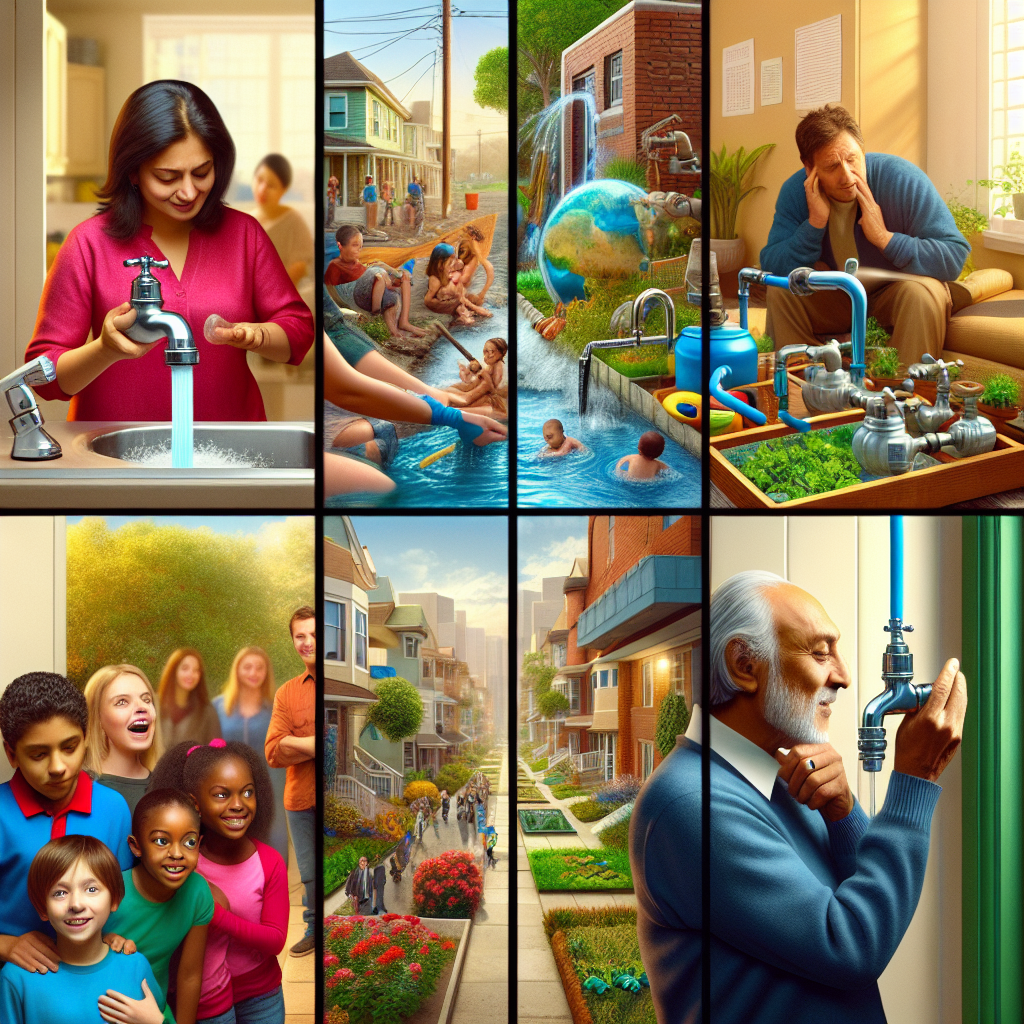The Psychology of Water Conservation: Changing Behaviors
In the face of escalating environmental challenges, water conservation has emerged not just as a practical necessity but as a crucial behavioral imperative. Understanding the psychological underpinnings of water use and conservation can shed light on why changing these behaviors can be challenging, and how these obstacles can be overcome. This article delves into the psychology of water conservation, exploring the factors that influence water-related behaviors and outlining strategies to promote sustainable water use practices.
Behavioral Insights into Water Use
Water use and conservation are influenced by a myriad of psychological factors, including habits, perceptions, attitudes, and social norms. Many individuals grow up in environments where water is perceived as an abundant, inexhaustible resource. This perception can lead to habitual behaviors that disregard the environmental impact of excessive water use, such as taking long showers or leaving the tap running while brushing teeth.
Moreover, water conservation efforts can be hindered by cognitive biases. For instance, the ‘bystander effect’ may lead individuals to assume that their personal contribution to water conservation is insignificant compared to the collective impact, thereby diminishing their motivation to conserve water. Similarly, the ‘optimism bias’ can make people believe that severe water scarcity is unlikely to affect them personally, thus reducing the urgency to adopt water-saving behaviors.
The Role of Social Norms and Social Learning
Social norms play a significant role in shaping water use behaviors. When wasteful water usage is the norm within a community, individuals are more likely to conform to this behavior to fit in. Conversely, when water-saving practices are widely adopted and visibly endorsed by influential figures or peers, this can create a powerful social incentive for individuals to conserve water.
Social learning theory also highlights the importance of observational learning in adopting new behaviors. Seeing others engage in water conservation, especially when these behaviors are rewarded or praised, can encourage individuals to emulate these practices. This underscores the potential of community-based initiatives and public awareness campaigns in fostering a culture of water conservation.
Strategies for Behavioral Change
Effective strategies for promoting water conservation need to tackle the psychological barriers to behavioral change. One approach is the use of nudges—subtle interventions that steer people towards making better choices without restricting their freedom. For example, installing water flow reducers on taps or showerheads can nudge individuals towards using less water without requiring conscious effort.
Education and awareness campaigns can also play a pivotal role in changing perceptions and attitudes towards water use. By providing information about the environmental impact of excessive water use and practical tips for conservation, these campaigns can enhance individuals’ motivation to adopt sustainable practices.
Furthermore, leveraging social norms can be highly effective. Publicly recognizing and rewarding communities, businesses, or individuals who excel in water conservation can set new social standards and encourage others to follow suit. Social media platforms can amplify these success stories, creating viral loops of positive reinforcement.
Behavioral Interventions in Practice
Several successful interventions highlight the potential of psychology-based strategies in promoting water conservation. For example, utility companies have begun providing customers with reports that compare their water usage with the neighborhood average. This leverages the power of social norms by making individuals aware of their relative consumption, often prompting them to reduce their usage.
Another innovative approach involves the gamification of water conservation, where individuals or households earn points, badges, or rewards for reducing their water footprint. This strategy taps into the psychological drivers of competition and achievement, making water conservation a more engaging and rewarding endeavor.
Challenges and Considerations
While psychological strategies offer promising avenues for promoting water conservation, several challenges remain. One of the key issues is the sustainability of behavior change. Initial enthusiasm for water-saving practices can wane over time, especially if individuals do not perceive immediate benefits or if the initial novelty of the intervention fades.
Moreover, there’s the risk of moral licensing, where people feel entitled to use more water after engaging in conservation efforts, counteracting the benefits of their previous actions. Ensuring that behavior change interventions are designed to promote long-term commitment and prevent backsliding is therefore crucial.
FAQs Section
Q: Can individual efforts to conserve water really make a difference?
A: Yes, individual actions, when collectively considered, can significantly impact water conservation. Small changes in daily habits can add up to substantial water savings over time.
Q: How can I motivate my community to engage in water conservation practices?
A: Start by setting an example with your own behavior. Organize community meetings or workshops to raise awareness, and collaborate with local authorities or organizations to initiate water conservation programs. Highlighting the collective impact and benefits can also motivate others to join the cause.
Q: Are there any psychological tools to help change my water use habits?
A: Yes, setting specific, achievable goals, monitoring your progress, and rewarding yourself for meeting conservation targets can be effective. Also, making a public commitment to conserve water can leverage social accountability as a motivator.
Q: What if water conservation practices are inconvenient?
A: It’s important to find a balance between conservation efforts and practicality. Many water-saving practices, such as fixing leaks or using water-efficient appliances, can lead to savings on water bills, offsetting any perceived inconvenience over time.
In conclusion, the psychology of water conservation is complex, intertwining habitual behaviors, perceptions, and social influences. By understanding and strategically addressing these psychological aspects, we can design more effective interventions to promote sustainable water use. As global water challenges intensify, fostering a culture of conservation becomes not just a practical necessity but a moral imperative, urging us to recalibrate our relationship with this vital resource for the benefit of current and future generations.

